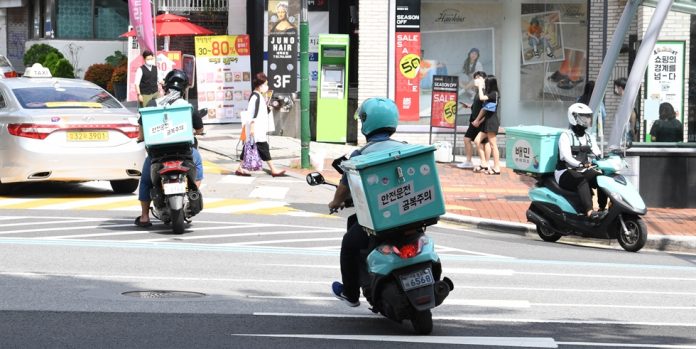Four out of 10 wage workers in their 20s hold irregular positions, marking the highest proportion ever recorded, according to data from Statistics Korea. The data showed that the number of wage workers in their 20s was tallied at about 3.38 million as of August, of which approximately 1.46 million were in irregular positions. This represents 43 percent, the highest proportion seen in the 21 years that relevant statistics have been collected. For the same month, the number of irregular workers in their 20s increased steadily from 1.06 million in 2014 to 1.15 million in 2017, 1.28 million in 2020 and 1.42 million last year.
In contrast, the number of regular workers for the same month increased from 2.27 million in 2014 to 2.35 million in 2018, but then declined to 2.11 million in 2020. This year, the number fell below 2 million for the first time since records began, reaching 1.92 million. Over the past 10 years, the number of regular workers decreased by 346,000, while irregular workers increased by 392,000. During the same period, the total number of wage workers, including both regular and irregular positions, rose by 45,000.
By employment type, the number of part-time workers among irregular employees in their 20s reached 817,000, an increase of 401,000 over the past decade, showing the largest rise compared to other types of irregular employment. The proportion of part-time workers also nearly doubled during the same period, going from 12.4 percent to 24.1 percent. A part-time worker in the Labor Standards Act in Korea is defined as an employee who works at least one hour less than the standard working hours of other employees performing the same job within the same workplace.
This showed that the increase in irregular employment among workers in their 20s can be attributed largely to this rise in part-time positions. This trend is believed to be linked to a growing preference for flexible working hours and adjusting work schedules according to individual needs. Among all irregular workers in their 20s, 66.6 percent reported choosing irregular positions voluntarily, the highest proportion recorded so far. Of them, 59.9 percent reported being satisfied with their working conditions, indicating an increasing trend of individuals opting for irregular employment by choice.
The tendency of the job market to prefer experienced candidates over new graduates, and to favour irregular hiring over regular recruitment, is also believed to have influenced this trend, prompting young people to increasingly enter irregular positions to build relevant experience. This suggests that a lack of quality jobs that meet the expectations of young workers may be contributing to the rise in irregular employment. In contrast, other age groups have shown a decrease in the proportion of irregular workers. “The previously high growth rate of employment is now showing signs of adjustment, and typically, individuals in their 20s are the most sensitive to such changes,” said Kim Ji-yeon, an analyst from the Korea Development Institute. “The increasing proportion of irregular workers can be viewed in this context as well.”




















